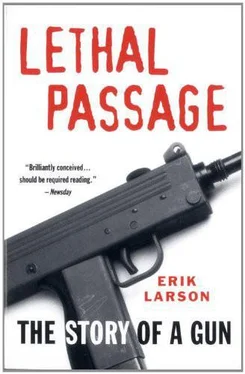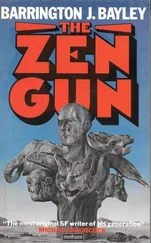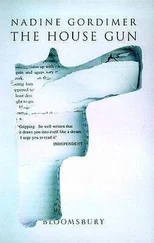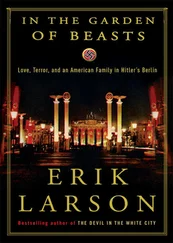When ATF learned of Archer’s purchase—three days later—the agency was instantly suspicious and launched a preliminary investigation. A few days after the first purchase Archer reappeared at Guns Unlimited, this time accompanied by a young woman, Lisa Yvonne Scott. Scott bought seven cheap Davis handguns. Again ATF learned of the sale only through a multiple-purchase form mailed by Guns Unlimited. Again the form arrived three days after the purchase—more than enough time for those guns to make their way from hand to hand, state to state. And again ATF immediately assumed that something illicit had occurred.
ATF’s Norfolk office called Guns Unlimited to get more details and learned that Scott had been accompanied by an unidentified male later identified as Dean Archer. By this point, however, eleven of the country’s favorite crime guns were on the street.
A few days later Scott appeared again and bought thirteen Davis pistols. This time Mike Dick telephoned ATF. Nonetheless, Archer and Scott left the store with their new purchases. The total of cheap and deadly Davis pistols bought by the pair had risen to twenty-four. Four days later Scott and Archer made yet another buying trip, but at last ATF was waiting. The two were arrested and convicted.
Clearly the store had been helpful to the bureau. But why would Guns Unlimited even consider selling a handgun to a buyer presenting an out-of-state license for identification? Federal law explicitly forbids out-of-state buyers from acquiring handguns.
Dick explained that the clerk accepted the license as identification only because it had a photograph of Archer and established the link between his face and his name. A Norfolk rent receipt and an ID card from a local college established that he lived in Virginia. The fact that he was enrolled in college explained why he would have a New York license and be renting an apartment in Virginia.
Federal law grants a licensed gun dealer broad discretion to refuse a sale to anyone; a brochure mailed to licensees shortly after they get their licenses states in bold print, “Know Your Customer.” Wouldn’t prudence have dictated that Guns Unlimited simply refuse to sell weapons when the nature of the sale provides clear grounds for suspicion—clear enough, certainly, for the Bureau of Alcohol, Tobacco and Firearms?
“Yes, they tell me I can refuse sales,” Dick said. “They tell me I have the discretion to do that. But in practical terms, that doesn’t give me the right to infringe on one’s civil rights.”
I asked him how he felt knowing that Nicholas Elliot and various gun traffickers had specifically sought out Guns Unlimited as the place to acquire their guns.
“Well, actually, good,” he said. “I don’t know how to describe it without sounding… bad. Because I come out of hospitality, customer service is my number one concern. Period. Beyond all others. The ethnicity of an individual, in my restaurants, my hotel rooms, my store, is absolutely unimportant. I don’t care what part of town you live in, what race you’re of, you’re going to be treated like a human being.”
“But I’m not talking about race. All I—”
Dick cut me off. “But that’s the point. I have a stronger black clientele than any store in Tidewater and I would bet any store in the state, and maybe any store in the Southeast, because—and word gets around—I treat people like human beings, and they can’t always get that elsewhere.”
One such client was Jean-Claude Pierre Hill, a young black physician from Virginia.
♦ ♦ ♦
On March 20, 1991, Hill walked into the Guns Unlimited store in Carrollton and was met at the counter by Mike Dick. Soon afterward, Hill decided to buy two stainless-steel Colt .45 auto-loading pistols, each priced at $529.99. He ordered the guns and put down a $100 deposit, then left the store. He returned on March 29 to pick up his guns and was again helped by Mike Dick. Dick brought out the two gleaming guns and let Hill inspect them, then pulled out a copy of form 4473 for Hill to fill out and sign.
ATF requires that the buyer himself fill out the top portion of the form, which asks for an address, details of the buyer’s physical appearance, and other information. The buyer must also answer eight questions about his background and mental health.
Hill wrote down an address in Hampton, Virginia, said he was born at Clarke Air Force Base in the Philippines on July 17, 1961, and described himself as standing five feet six inches tall and weighing 170 pounds. At the prompt for “race,” he wrote “other.”
Next he answered the eight questions. The first four questions asked if he was currently under indictment, if he had ever been convicted of a felony, if he was currently a fugitive from justice, and if he used drugs. He answered no to each.
The fifth question asked: “Have you ever been adjudicated mentally defective or have you ever been committed to a mental institution?”
Here too Hill answered no.
Yet from July 25 through September 18, 1990, Hill had been a patient in an Air Force psychiatric unit, where he was diagnosed as paranoid, schizophrenic, and prone to exhibit “aggressive behavior.” On several occasions Hill threatened the hospital staff, once saying, “I’m going to get you when I get out of here, I’m going to get you all.”
From time to time, the hospital ordered him placed in four-point restraints. This was a prudent measure, as it happens. On the evening of August 29, 1990, Hill—at that moment unrestrained—leapt from his chair and punched a resident physician in the face, breaking the young doctor’s nose. Before the staff could restrain him, Hill punched the doctor again.
He threatened to kill members of the staff. He told a nurse, “I’m going to bring my gun back when I’m released and blow your goddamn brains out, you bitch.”
Hill answered the remaining questions on form 4473 and passed the form back to Mike Dick, who looked it over and asked Hill to explain what he meant by “other,” in the race box. Hill said his mother was French, his father African American; to Dick, however, Hill was clearly black. Dick asked him to be more specific. Hill changed the answer to “black.”
Still, something about Hill made Dick uncomfortable.
Dick remembered the case well.
“I can tell you that in that particular situation there was something wrong about him,” he told me during our conversation over coffee that June morning. Hill claimed to have been in the Army, but knew nothing about how to field-strip a Colt, “one of the first things you learn in boot camp,” Dick said. “I called ATF while he was in the store; I said I can’t put my finger on it, but there’s just something not right here.”
ATF ran a background check through the National Crime Information Center, Dick said, but found nothing. No one at the agency’s Norfolk office knew of Hill or had any reason to worry about him. So Dick sold Hill the guns.
“Why?” I asked. “Couldn’t you have just said, ‘You worry me, I don’t think you were in the Army, I’m not going to sell you these weapons’?”
“You’re absolutely right, that’s what I could have said. But do I trample on somebody’s individual rights simply because I feel bad and ATF says I have the discretion to do it?”
In addition to the two Colts, Hill bought two extra magazines, some cleaning equipment, and 270 rounds of ammunition. He paid $1,147.87 in cash and left.
He had never signed the federal purchase form, however. And Mike Dick, despite his concerns about Hill, had not noticed the omission—even though the buyer’s signature is an absolute requirement before any handgun purchase can be completed, and ATF insists the dealer witness the signature.
Читать дальше








![Ричард Деминг - Whistle Past the Graveyard [= Give the Girl a Gun]](/books/412176/richard-deming-whistle-past-the-graveyard-give-t-thumb.webp)



